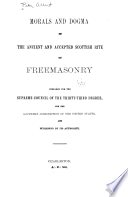
Source: Morals and Dogma of the Ancient and Accepted Scottish Rite of Freemasonry (1871), Ch. XXII : Grand Master Architect, p. 194
Context: To the gentle, many will be gentle; to the kind, many will be kind. A good man will find that there is goodness in the world; an honest man will find that there is honesty in the world; and a man of principle will find principle and integrity in the hearts of others.
There are no blessings which the mind may not convert into the bitterest of evils; and no trials which it may not transform into the noblest and divinest blessings. There are no temptations from which assailed virtue may not gain strength, instead of falling before them, vanquished and subdued.
